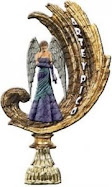1
SOMETHING startles me where I thought I was safest; |
|
| I withdraw from the still woods I loved; |
|
| I will not go now on the pastures to walk; |
|
| I will not strip the clothes from my body to meet my lover the sea; |
|
| I will not touch my flesh to the earth, as to other flesh, to renew me. |
5 |
| |
| O how can it be that the ground does not sicken? |
|
| How can you be alive, you growths of spring? |
|
| How can you furnish health, you blood of herbs, roots, orchards, grain? |
|
| Are they not continually putting distemper’d corpses within you? |
|
| Is not every continent work’d over and over with sour dead? |
10 |
| |
| Where have you disposed of their carcasses? |
|
| Those drunkards and gluttons of so many generations; |
|
| Where have you drawn off all the foul liquid and meat? |
|
| I do not see any of it upon you to-day—or perhaps I am deceiv’d; |
|
| I will run a furrow with my plough—I will press my spade through the sod, and turn it up underneath; |
15 |
| I am sure I shall expose some of the foul meat. |
|
| |
2
Behold this compost! behold it well! |
|
| Perhaps every mite has once form’d part of a sick person—Yet behold! |
|
| The grass of spring covers the prairies, |
|
| The bean bursts noislessly through the mould in the garden, |
20 |
| The delicate spear of the onion pierces upward, |
|
| The apple-buds cluster together on the apple-branches, |
|
| The resurrection of the wheat appears with pale visage out of its graves, |
|
| The tinge awakes over the willow-tree and the mulberry-tree, |
|
| The he-birds carol mornings and evenings, while the she-birds sit on their nests, |
25 |
| The young of poultry break through the hatch’d eggs, |
|
| The new-born of animals appear—the calf is dropt from the cow, the colt from the mare, |
|
| Out of its little hill faithfully rise the potato’s dark green leaves, |
|
| Out of its hill rises the yellow maize-stalk—the lilacs bloom in the dooryards; |
|
| The summer growth is innocent and disdainful above all those strata of sour dead. |
30 |
| |
| What chemistry! |
|
| That the winds are really not infectious, |
|
| That this is no cheat, this transparent green-wash of the sea, which is so amorous after me, |
|
| That it is safe to allow it to lick my naked body all over with its tongues, |
|
| That it will not endanger me with the fevers that have deposited themselves in it, |
35 |
| That all is clean forever and forever. |
|
| That the cool drink from the well tastes so good, |
|
| That blackberries are so flavorous and juicy, |
|
That the fruits of the apple-orchard, and of the
orange-orchard—that melons, grapes, peaches, plums, will none of them
poison me, |
|
| That when I recline on the grass I do not catch any disease, |
40 |
| Though probably every spear of grass rises out of what was once a catching disease. |
|
| |
3
Now I am terrified at the Earth! it is that calm and patient, |
|
| It grows such sweet things out of such corruptions, |
|
| It turns harmless and stainless on its axis, with such endless successions of diseas’d corpses, |
|
| It distils such exquisite winds out of such infused fetor, |
45 |
| It renews with such unwitting looks, its prodigal, annual, sumptuous crops, |
|
| It gives such divine materials to men, and accepts such leavings from them at last.
by Walt Whitman (1819–1892). Leaves of Grass. 1900. |

 Subscribe to RSS feed
Subscribe to RSS feed


